Lotteries by country
A lottery is a form of gambling which involves the drawing of lots for a prize. Lottery is outlawed by some governments, while others endorse it to the extent of organizing a national or state lottery. It is common to find some degree of regulation of lottery by governments. In several countries, lotteries are legalized by the governments themselves.[1]
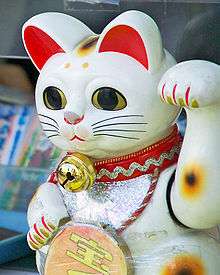
Countries with a national lottery
Africa

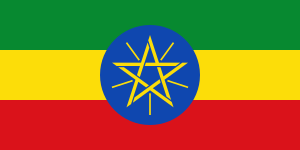


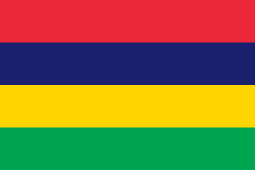


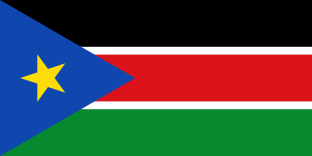

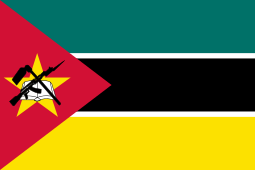

North and South America

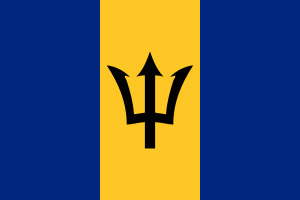
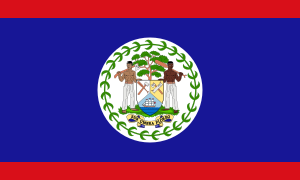
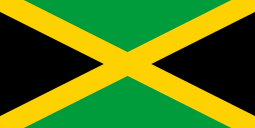
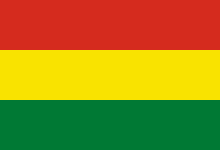


.svg.png)


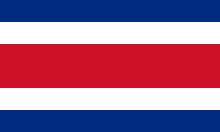


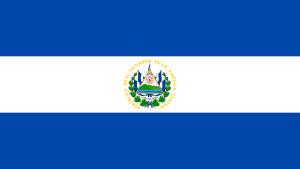
.svg.png)




Asia


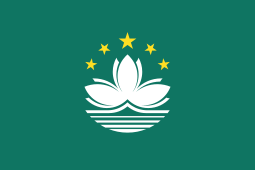



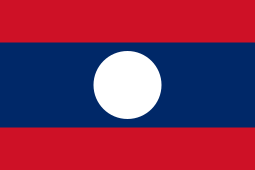


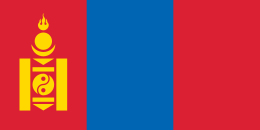










Europe
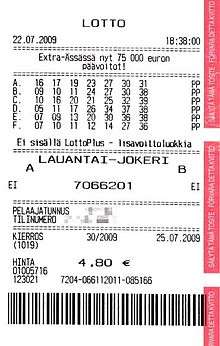

.svg.png)


































.svg.png)

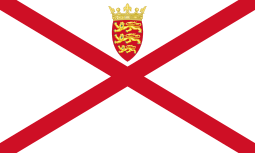
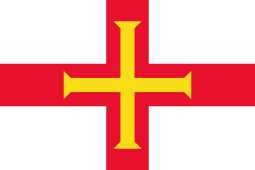











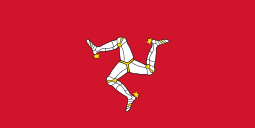



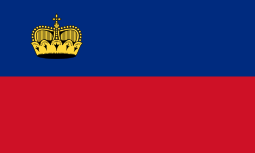




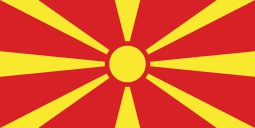
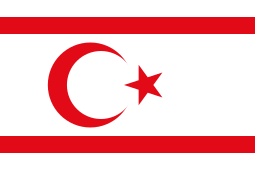














Oceania
.svg.png)

Notable prizes
| Prize
(local currency) |
Lottery | Country | Winner | Date | Notes |
|---|---|---|---|---|---|
| $1586.4m | Powerball | Three tickets | 13 January 2016 | Largest ever jackpot | |
| $1537.0m | Mega Millions | One ticket | 23 October 2018 | Anonymous winner from South Carolina[4] | |
| $656.0m | Mega Millions | Three tickets | 30 March 2012 | ||
| $590.5m | Powerball | One ticket from Florida | 18 May 2013 | Winner, 84-year-old Gloria C. MacKenzie, collect lump sum of $371m[5] | |
| $451m | Mega Millions | One ticket | 5 January 2018 | Shane Missler, Port Richey, Florida [6] | |
| $390m | Mega Millions | One ticket each from New Jersey and Georgia | 6 March 2007 | ||
| $380m | Mega Millions | One ticket each from Idaho and Washington | 4 January 2011 | ||
| $365m | Powerball | One ticket bought by eight co-workers from a Nebraska meat-processing plant | 18 February 2006 | ||
| $363m | The Big Game | Two winning tickets: Larry and Nancy Ross (Michigan), Joe and Sue Kainz (Illinois) | 9 May 2000 | The Big Game is now known as Mega Millions | |
| $340m | Powerball | One ticket (Medford, Oregon) | 19 October 2005 | ||
| $319m[7] | Mega Millions | Largest Mega Millions win from a New York-bought ticket | 25 March 2011[8] | Won by employees of same IT firm who shared 1 ticket ($19m each after tax). | |
| $315m | Mega Millions | Largest Mega Millions prize on one ticket (California) | 15 November 2005 | ||
| $314.9m | Powerball | Andrew Jackson “Jack” Whittaker, Jr. | 25 December 2002 | ||
| €183.5m cash | EuroMillions | Three tickets | 3 February 2006 | Europe's largest jackpot | |
| €177.7m cash | SuperEnalotto | One ticket, shared by 70 players | 30 October 2010 | ||
| €147.8m cash | SuperEnalotto | One ticket, sold in Bagnone (Tuscany) | 22 August 2009 | Europe's biggest winning ticket | |
| €163.5m | SuperEnalotto | One ticket | 27 October 2016 | [9] | |
| €209.16m | SuperEnalotto | One ticket | 13 August 2019 | [10] | |
| €129.8m | EuroMillions cash | Anonymous UK resident | 8 October 2010 | Biggest EuroMillions win | |
| €126.2m | EuroMillions | Anonymous 25-year-old woman from Mallorca | 8 May 2009 | Largest single winner in EuroMillions. | |
| €115.4m | EuroMillions | Dolores McNamara[11] | 29 July 2005 | Biggest single winner and jackpot (Ireland) | |
| €100m | EuroMillions | One anonymous ticket holder. Ticket sold in Tienen. | 9 February 2007 | Biggest single winner and jackpot (Belgium) | |
| €100m | EuroMillions | One ticket holder but shared by a syndicate of 15 players. Ticket sold in Venelles (Bouches-du-Rhône). | 18 September 2009 | Biggest win and jackpot (France) | |
| £84.4m | EuroMillions | Won by Lebanese Rock Star "Roby Obeid" | 14 May 2010 | ||
| £56m | EuroMillions | Nigel Page and Justine Laycock from Cirencester. The total jackpot of £112m was shared with a winner in Spain. | 12 February 2010 | ||
| £42m | National Lottery | Three ticket holders | 6 January 1996 | ||
| €38.4m | State Lottery | Ticket sold in Utrecht | 10 May 2013 | Tax free lump sum | |
| €37.6m | National Lottery | Won by a nurse from North Rhine-Westphalia | 7 October 2006 | Largest German prize and single winner | |
| RMB¥ 570m | Union Lotto | One ticket holder from Beijing, China | 12 June 2012 | Asia's largest prize (€79.34m, US$87.32m) | |
| R$145m | Mega-Sena | Won by one ticket holder from Brasília (Federal District) and one from Santa Rita do Passa Quatro (São Paulo) | 31 December 2009 | South America's largest prize | |
| A$112m | OZ lotto | Four winning tickets[12] | 6 November 2012 | Australia's highest lottery prize | |
| ₩$40.72B | 6/45 Lotto South Korea | A police officer in Chuncheon, Gangwon Province, was the sole winner who claimed 40.72 billion Korean Won[13] | April 2003 | South Korea's largest lottery win |
Sources:
USA Mega Lottery News Retrieved on: April 2, 2011
£110m winner of EuroMillions jackpot was ill in bed with flu Retrieved on: April 2, 2011
Lottery winner claims £77m cheque Retrieved on: April 2, 2011
Three winners scoop EuroMillions Retrieved on: April 2, 2011
Eight share $365m US lottery win Retrieved on: April 2, 2011
Biggest Wins in Italy Listed (in Italian) Retrieved on: April 2, 2011
Jackpot of 25 million is in The Hague region (in Dutch) Retrieved on: April 2, 2011
On 20 September 2005 a primary school boy in Italy won the equivalent of £27.6 million in the Italian national lottery. Although children are not allowed to gamble under Italian law, children are allowed to play the lottery.[14]
Country details
Australia
In Australia, lotteries operators are licensed at a state or territory level, and include both state government-owned and private sector companies.
The first lottery in Australia took place in the 1880s in Sydney. It was a private sweepstakes that was quickly prohibited, despite being moved to other areas such as Queensland and Victoria.[15] In 1916, the Australian government started their own lottery, named the 'Golden Casket Art Union', with the intention of raising money for charities and projects. Its first draw is credited with raising funds for veterans of World War One.[16]
Lotteries in Australia are now operated by Tatts Group under Government licence in each State or Territory with the exception of Western Australia.
Australia also supports online lottery sales with two licensed re-sellers, Netlotto Pty Ltd and Jumbo Interactive which sell Australian lottery products through their websites.
Canada
In Canada prior to 1967 buying a ticket on the Irish Sweepstakes was illegal. In that year the federal Liberal government introduced a special law (an Omnibus Bill) intended to bring up-to-date a number of obsolete laws. Pierre Trudeau, the Minister of Justice at that time, sponsored the bill. On September 12, 1967, Mr. Trudeau announced that his government would insert an amendment concerning lotteries.
Even while the Omnibus Bill was still being written, Montreal mayor Jean Drapeau, trying to recover some of the money spent on the World’s Fair and the new subway system, announced a "voluntary tax". For a $2.00 "donation" a player would be eligible to participate in a draw with a grand prize of $100,000. According to Drapeau, this "tax" was not a lottery for two reasons. The prizes were given out in the form of silver bars, not money, and the "competitors" chosen in a drawing would have to reply correctly to four questions about Montreal during a second draw. That competition would determine the value of the prize that the winner would win. The replies to the questions were printed on the back of the ticket and therefore the questions would not cause any undue problems. The inaugural draw was held on May 27, 1968.
There were debates in Ottawa and Quebec City about the legality of this 'voluntary tax'. The Minister of Justice alleged it was a lottery. Montreal’s mayor replied that it did not contravene the federal law. While everyone awaited the verdict, the monthly draws went off without a hitch. Players from all over Canada, the United States, Europe, and Asia participated.
On September 14, 1968 the Quebec Appeal Court declared Mayor Drapeau’s "voluntary tax" illegal. However, the municipal authorities did not give up the struggle; the Council announced in November that the City would appeal this decision to the Supreme Court.
As the debate over legalities continued, sales dropped significantly, because many people did not want to participate in anything illegal. Despite offers of new prizes the revenue continued to drop monthly, and by the nineteenth and final draw, was only a little over $800 000.
On December 23, 1969 an amendment was made to the Canada's Criminal Code, allowing a provincial government to legally operate lottery systems.
The first provincial lottery in Canada was Quebec's Inter-Loto in 1970. Other provinces and regions introduced their own lotteries through the 1970s, and the federal government ran Loto Canada (originally the Olympic Lottery) for several years starting in the late 1970s to help recoup the expenses of the 1976 Summer Olympics. Lottery wins are generally not subject to Canadian tax, but may be taxable in other jurisdictions, depending on the residency of the winner.[17]
Today, Canada has three nationwide lotteries: Lotto 6/49, Lotto Max (the latter replaced Lotto Super 7 in September 2009) and Daily Grand. These games are administered by the Interprovincial Lottery Corporation, which is a consortium of the five regional lottery commissions, all of which are owned by their respective provincial and territorial governments:
- Atlantic Lottery Corporation (New Brunswick, Nova Scotia, Prince Edward Island, Newfoundland and Labrador)
- Loto-Québec (Quebec)
- Ontario Lottery and Gaming Corporation (Ontario)
- Western Canada Lottery Corporation (Manitoba, Saskatchewan, Alberta, Yukon, Northwest Territories, Nunavut)
- British Columbia Lottery Corporation (British Columbia)
- Lotto 6/49
- Lotto Max (replaced Lotto Super 7 in September 2009)
- Millionaire Life (occasional lottery, often once a year)
Primary, 48% of the total sales are used for jackpot, with the remaining 52% used for administration and sponsorship of hospitals and other local causes.
France
The first known lottery in France was created by King Francis I in or around 1505. After that first attempt, lotteries were forbidden for two centuries. They reappeared at the end of the 17th century, as a "public lottery" for the Paris municipality (called Loterie de L'Hotel de Ville) and as "private" ones for religious orders, mostly for nuns in convents.
Lotteries quickly became one of the most important resources for religious congregations in the 18th century, and helped to build or rebuild about 15 churches in Paris, including St. Sulpice and Le Panthéon. At the beginning of the century, the King avoided having to fund religious orders by giving them the right to run lotteries, but the amounts generated became so large that the second part of the century turned into a struggle between the monarchy and the Church for control of the lotteries. In 1774, the monarchy—specifically Madame de Pompadour—founded the Loterie de L'École Militaire to buy what is called today the Champ de Mars in Paris, and build a military academy that Napoleon Bonaparte would later attend; they also banned all other lotteries, with 3 or 4 minor exceptions. This lottery became known a few years later as the Loterie Royale de France. Just before the French Revolution in 1789, the revenues from La Lotterie Royale de France were equivalent to between 5 and 7% of total French revenues.
There have also been reports of lotteries regarding the mass guillotine executions in France. It has been said that a number was attached to the head of each person to be executed and then after all the executions, the executioner would pull out one head and the people with the number that matched the one on the head were awarded prizes (usually small ones); each number was 3-to-5 digits long.
Throughout the 18th century, philosophers like Voltaire as well as some bishops complained that lotteries exploit the poor. This subject has generated much oral and written debate over the morality of the lottery. All lotteries (including state lotteries) were frowned upon by idealists of the French Revolution, who viewed them as a method used by the rich for cheating the poor out of their wages.
The Lottery reappeared again in 1936, called lotto, when socialists needed to increase state revenue. Since that time, La Française des Jeux (government owned) has had a monopoly on most of the games in France, including the lotteries.
Germany
The German lottery runs Lotto 6aus49 drawings on Wednesday and Saturday evenings,[18] along with additional games such as Super6, Spiel77 and Glücksspirale. The highest jackpot ever won was on 5 December 2007 where 3 people shared 45,382,458 euros. This is about 2 million euros less than the highest jackpot possible. The highest jackpot ever won in Germany was at a EuroJackpot lottery. On October 14, 2016, a tipper from Baden-Wurttemberg won a jackpot of 90 million euros.[19]
India
There are many lottery games that take place in India, all of which are run by state government organisations under the rules and regulations of the federal government.[20] Before 1967 private lotteries were allowed but were later banned in favour for state lotteries.[21]
State governments such as those of Kerala, Punjab, Goa and Sikkim, run their own lottery departments and conduct lucky draws daily or weekly.
Kerala State Lotteries, established in 1967, under the lottery department by the Government of Kerala was the first of its kind in India. The department was successful and has grown throughout the state of Kerala by contributing to the needful and became the role model for other states for starting their own lotteries. According to the department, it had a profit of Rs 788.42 crore in the 2013-14 financial year, the largest ever, while it made Rs 681.76 crore in profit in 2012-13. When the state lottery was started in 1967, the total revenue from sales was only Rs 20 lakh. The profit alone touched Rs 625.74 crore in 2009-2010 and Rs 557.69 crore in 2010-2011. The department now boasts of more than 35,000 authorised agents and over 100,000 retail sellers.[22]
The profits from state lotteries sponsor several welfare programs. One of these is the Karunya Benevolent Fund Scheme that provides financial assistance to under-privileged people suffering from acute ailments like Cancer, Haemophilia, Kidney and Heart diseases and for Palliative Care.[23]
States banning the lottery
On January 8, 2003, the Tamil Nadu government banned the sale of all forms of lottery by agencies from and outside the state.[24] This ban has been upheld by successive governments. But it has been withdrawn and for the last few years Kerala and all other State Government lotteries are being sold in Tamil Nadu.
In the states where lotteries are banned some players search for online alternatives giving way for online lotteries in India.[25] Legislation is different from state to state where states like Punjab have legislation for online lotteries and states like Bihar have set up explicit bans on all lotteries.[26]
Israel
While gambling is illegal in Israel, Mifal HaPayis or the national lottery was established in August 1951 to recruit funding for the construction of a hospital in Tel Aviv.
Games include the flagship lottery, Chance, Keno, 777, 123, Hish Gad (themed scratchcard games), lottery subscriptions and the Big Lottery, The recorded prize in israeli lotto is 74 Million ILS and 148 Million ILS in the double lotto.
Japan
The Shrine Temple which gained permission of the public in the Edo Era had released a rush for promotion, it was prohibited by Meiji's Penal Code (a theory that was in the Cabinet Order of 1869). But in dark urban areas where it was illegal, lotteries were widely done.
On July 16, 1945 during the Second World War, the country would release "winning cards" in order to procure war expenses. As a result of lack of goods, prize prizes (cigarettes and kanakin (cotton calico)) were popularized but lost before the draw. After the war in 1948, local Japanese governments were permitted to release lottery tickets by the voting warrant certificate method.
In Japan's law, it is forbidden to purchase lottery tickets issued by foreign governments and foreign organizations in Japan that originated from other countries (As read in Japan's Criminal Code Article 187, Paragraph 3, Lucky Ticket Accepted Crime), The advertisement such as lottery release municipalities, trust banks and the Japan Lottery Association also has written to that effect.
Liechtenstein
The International Lottery in Liechtenstein Foundation (ILLF) is a government authorised and state controlled charitable foundation that operates Internet lotteries. The ILLF pioneered Internet gaming, having launched the web’s first online lottery, PLUS Lotto, in 1995 and processed the first online gaming transaction ever. The International Lottery in Liechtenstein Foundation (ILLF) also introduced the first instant scratchcard games on the Internet during this time. The ILLF supports a wide range of charitable projects and organisations internationally and in Liechtenstein.
The ILLF operates many websites, referred to as the ILLF brands. Combined, these brands offer a wide array of games to choose from.
Lottery winnings are not taxed in Liechtenstein.
New Zealand
Lotteries in New Zealand are controlled by the Government. A state-owned trading organisation, the New Zealand Lotteries Commission, operates small-prize scratch ticket games and Powerball-type lotteries with weekly prize jackpots. Lottery profits are distributed by the New Zealand Lottery Grants Board directly to charities and community organisations. Sport and Recreation New Zealand, Creative New Zealand and the New Zealand Film Commission are statutory bodies that operate autonomously in distributing their allocations from the Lottery Grants Board.
The lotteries are drawn on Saturday and Wednesday. Lotto is sold via a network of computer terminals in shopping centers across the nation. The Lotto game was first played in 1987 and replaced New Zealand's original national lotteries, the Art Union and Golden Kiwi. Lotto is a pick 6 from 40 numbers game. The odds of winning the first division prize of around NZ$300,000 to NZ$2 million are 1 in 3,838,380.
The Powerball game is the standard pick 6 from 40 Lotto numbers with an additional pick 1 from 10 Powerball number. This game has odds of 1 in 38,383,800. It has a minimum first prize of NZ$4 million and has a must-be-won draw when the prize has jackpotted to NZ$50 million. In 2007 Powerball changed to a pick 1 of 10 game (formerly pick 1 of 8) and the minimum Powerball prize increased from $1 million to $2 million. In 2010, to cover the GST increase, New Zealand Lotteries Commission increased the price of Powerball from NZ50c per board to 60c. But to cover this, the minimum jackpot went from NZ$3 million to NZ$4 million. Powerball was the only game to increase in price to cover the GST increase. Big Wednesday was a game played by picking 6 numbers from 45 plus heads or tails from a coin toss. A jackpot cash prize of NZ$1 million to NZ$15 million is supplemented with product prizes such as Porsche and Aston Martin cars, boats, holiday homes and luxury travel. The odds of winning first prize are 1 in 16,290,120. This was discontinued in 2017, the standard Lotto and Powerball replaced it.
Website operators independent of the state Lotteries Commission[27] began publishing online Lotto results[28] as early as 1998.[29] An interactive Lotto website authorised to sell tickets online was established in 2007.
There are also two other games, Keno and Bullseye. New Zealand Lotteries claims that their game, 'Bullseye' is a world first.[30]
Lottery winnings are not taxed in New Zealand.
United Kingdom
There is one National Lottery in the United Kingdom which is called The National Lottery currently has four games Thunderball, Lotto, Lotto Hotpicks and EuroMillions which is played on a pan-European basis. The National Lottery is operated on a franchise basis from the National Lottery Commission and is currently held by Camelot Group. A new Privately run lottery called The Health Lottery has recently launched. Others include:
United States
In the United States, the existence of lotteries is subject to the laws of each jurisdiction; there is no national lottery.
Private lotteries were legal in the US in the early 19th century.[31] In fact, a number of US patents were granted on new types of lotteries. In today's vernacular, these would be considered business method patents.
Before the advent of government-sponsored lotteries, many illegal lotteries thrived; see Numbers game and Peter H. Matthews. The oldest continuing government-run lottery in the US was established in Puerto Rico in 1934; the oldest continuing lottery on the US mainland began in 1964 in New Hampshire. As of 2011, lotteries are established in 43 states, the District of Columbia, Puerto Rico, and the US Virgin Islands;
The first modern US mult-jurisdictional lottery was formed in 1985, linking Maine, New Hampshire, and Vermont. In 1988, the Multi-State Lottery Association (MUSL) was formed with Oregon, Iowa, Kansas, Rhode Island, West Virginia, Missouri, and the District of Columbia as its charter members; it is best known for Powerball, which was designed to build up very large jackpots. The other major US multi-jurisdictional game, then known as The Big Game (now called Mega Millions), was formed in 1996 by Georgia, Illinois, Massachusetts, Maryland, Michigan and Virginia as its charter members.[32] In late 2009, MUSL and the Mega Millions consortium agreed to allow US jurisdictions then with either game to sell tickets for both beginning January 31, 2010. As of April 13, 2011, Mega Millions is available in 43 jurisdictions, with Powerball in 44; both games are available in 42 jurisdictions.
Instant lottery tickets, also known as scratch cards, were introduced in the 1970s, becoming a major source of US lottery revenue. Some jurisdictions have introduced keno and/or video lottery terminals (slot machines in all but name).
Other major US lotteries include Cashola, Hot Lotto, and Wild Card 2, some of MUSL's other games. (Cashola ended May 2011.)
With the advent of the Internet it became possible for people to play lottery-style games on-line, many times for free (the cost of the ticket being supplemented by merely seeing an ad or some other form of revenue). GTech Corporation, headquartered in West Greenwich, Rhode Island, administers 70% of worldwide online and instant lottery business, according to its website. With online gaming rules generally prohibitive, "lottery" games face less scrutiny. This is leading to the increase in web sites offering lottery ticket purchasing services, charging premiums on base lottery prices. The legality of such services falls into question across many jurisdictions, especially throughout the United States, as the gambling laws related to lottery play generally have not kept pace with the spread of technology.
Presently, large portions of many American state lotteries are used to fund public education systems.
References
- Liberto, Daniel. "Lottery Definition". Investopedia. Retrieved 2020-04-28.
- ""La Libanaise des Jeux" introduces new daily game "Yawmiyeh"". Lebanese Republic Ministry of Information. Retrieved 2017-01-23.
- "Loterija Slovenije". Retrieved 2012-01-21.
- "Mega Millions Jackpot History".
- "84-year-old Florida woman claims $371m lotto jackpot - Independent.ie".
- "Shane Missler: The 20 Year Old Who Won the $451 Mega Millions Jackpot".
- Detroit Free Press: If your office won Mega Millions Retrieved on: April 2, 2011
- Gambling Results - Seven New York IT Nerds Win $319 Mega Millions Lotto Jackpot Retrieved on: April 2, 2011
- SuperEnalotto Official Website (ed.). "Grandi vincite ogni anno". www.superenalotto.it.
- "Dettagli estrazione SuperEnalotto del 13/8/2019".
- "What happened to Dolores McNamara, Ireland's biggest lottery winner?". Multilotto.ie. Archived from the original on 2017-07-28.
- Mum's disbelief as she shares in $100 million Oz Lotto draw . Daily Telegraph, 7 November 2012. Retrieved on 15 June 2015.
- "Lottery marks 10th anniversary in Korea, gives $25 bln in prizes". www.donga.com. Retrieved 2019-12-03.
- "Scottish & Scotland news, UK & latest world news". The Daily Record. Retrieved 2012-09-22.
- "Archived copy". Archived from the original on 2014-12-14. Retrieved 2014-12-03.CS1 maint: archived copy as title (link)
- "the Lott - Australia's Official Lotteries". thelott.com. Retrieved 2019-06-11.
- "Internet Archive". 2006-04-23. Archived from the original on April 23, 2006. Retrieved 2012-09-22.
- "Lotto Berlin" (PDF). Lotto Berlin. Archived from the original (PDF) on 18 July 2014. Retrieved 7 March 2015.
- "List of german jackpots". Lotto online Kiosk. Retrieved 4 October 2017.
- "Lottery in India - What is available?". Online Lotteries. Retrieved 2020-04-28.
- Pradeep, K. (2018-02-02). "Lottery dreams". The Hindu. ISSN 0971-751X. Retrieved 2020-04-27.
- raj, rohit (2015-11-22). "Kerala luckiest in lottery business". Deccan Chronicle. Retrieved 2020-04-27.
- "Karunya Benevolent Fund Scheme - Government of Kerala, India". kerala.gov.in. Retrieved 2020-04-28.
- Govt bans lottery in Tamil Nadu. The Times of India: City Jan 9, 2003. Retrieved on 3013-11-18.
- "New Crorepatis from Nagaland Lottery". India Post. Retrieved 2020-04-27.
- "India: Gambling 2020". International Comparative Legal Guides International Business Reports. Retrieved 2020-04-27.
- New Zealand State Lotteries Commission Archived December 3, 2010, at the Wayback Machine
- LottoResults.co.nz. "Lotto, Keno, Bullseye and Play 3 Results and Tools". www.nzlottoresults.co.nz.
- "Internet Archive". 1998-12-12. Archived from the original on August 25, 2011. Retrieved 2012-09-22.
- All About Bullseye Archived July 24, 2011, at the Wayback Machine
- Bellhouse, D.R., “The Genoese Lottery”, Statistical Science, vol. 6, No. 2. (May, 1991), pp. 141 -148
- "Mega Millions: Mega Interesting History! (the Big Game)". 5 June 2014.
| Wikimedia Commons has media related to Lotteries by country. |